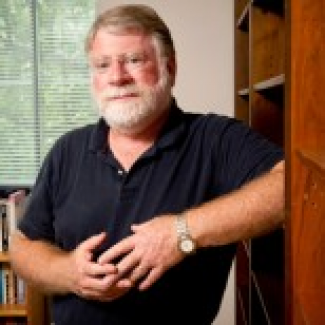David Zonderman

Publications
- Collecting the Globe: The Salem East India Marine Society Museum , JOURNAL OF AMERICAN HISTORY (2022)
- New Perspectives on Southern Repression , Southern Labor Studies Association (2022)
- White Workers and the American Civil War , Oxford Research Encyclopedia of American History (2021)
- Adventures in Free Trade: US Business and Labor in the Cold War , Business History Conference (2020)
- American Baroque: Pearls and the Nature of Empire, 1492-1700 , JOURNAL OF AMERICAN HISTORY (2019)
- An Enduring Dialectic: Labor, Class and Racial Identity across Time and Space in the Post-Civil War US , Labor and Working Class History Association, Annual Meeting (2019)
- Labor Organizing in Higher Education , Disorientation Symposium (2019)
- Civic labors: Scholar activism and working-class studies , Labor-Studies in Working-Class History of the Americas (2018)
- Networks of Power, Knowledge, and Control in Industrializing America , JOURNAL OF URBAN HISTORY (2014)
- Minding the machine: Languages of class in early industrial America , Labour (Halifax, N.S.) (2006)
Grants
The North Carolina State University 2006 Harrelson Lecture will feature Dr. Leon Kass, M.D., Ph.D. Dr. Kass is the current Chairperson of the President's Council on Bioethics. He also holds the Addie Clark Harding Professor in the Committee on Social Thought at the University of Chicago (on leave of absence) and is the Hertog Fellow in Social Thought at the American Enterprise Institute. Dr. Kass' lecture (tentatively titled "The Challenge for Bioethics") will focus on the ethical and philosophical issues surrounding biomedical advance, such as in vitro fertilization, cloning, genetic screening, and genetic technology. Dr. Kass will deliver the primary Harrelson Lecture, and a related lecture to the College of Humanities and Social Sciences during his two-day residency. He will also participate in 3 classroom visits and discussions with undergraduate students in the biological sciences and students in the College Of Humanities and Social Sciences. Twenty-five to thirty students are expected to be present for each classroom visit.